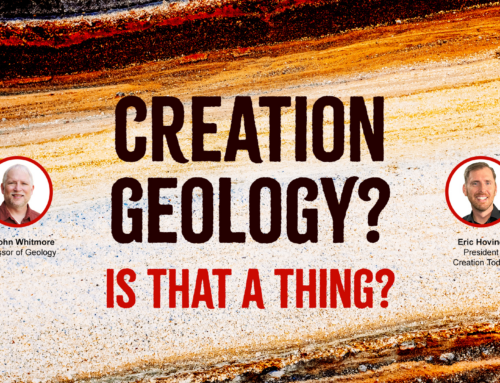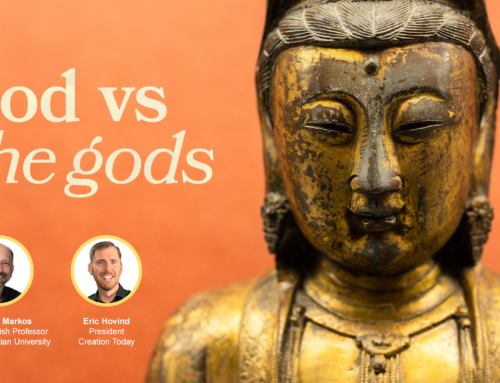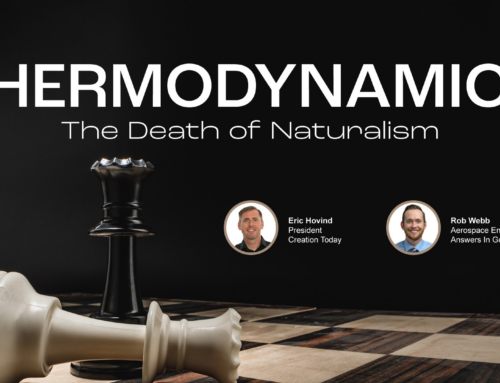Humans all have a tendency to align with those with whom we have things in common. Whether these commonalities are based on looking the same, having similar tastes or holding the same beliefs, groups form for various reasons. At Creation Today, we have based our ministry on the literal interpretation of the creation as told in Genesis; that the world was created in six literal days, about 6,000 years ago (not billions). Let’s explore how some Christian denominations treat the creation story.
Catholic
“The books of Scripture firmly, faithfully, and without error teach that truth which God, for the sake of our salvation, wished to see confided to the Sacred Scriptures.” (Catechism, 2nd ed.) Though this statement says that the Bible is “without error,” Catholics are free to believe that creation took a few days or a much longer period, according to how they interpret the evidence. Their beliefs about creation, indeed, about everything, are subject to any future interpretation of the Church, in the form of their leaders—the Pope and bishops. More about Catholics’ views of creation are based on the writings of the historical heroes of the Church; among them, Justin Martyr, Theophilus of Antioch, Clement of Alexandria, Cyprian, Basil the Great and Augustine.
Assemblies of God
Recently, this denomination changed its position on creation. During Session 8 this year, delegates revised “The Doctrine of Creation,” opening the door to the consideration of scientific evidence. This move has negated their 1977 statement: “Assemblies of God believers hold that the Genesis account should be taken literally.”
Lutheran
In its 1932 Missouri Synod (a council of church delegates), Lutherans proclaimed: “We teach that God has created heaven and earth, and that in the manner and in the space of time recorded in the Holy Scriptures, especially Gen. 1 and 2, namely, by His almighty creative word, and in six days. We reject every doctrine which denies or limits the work of creation as taught in Scripture. In our days it is denied or limited by those who assert, ostensibly in deference to science, that the world came into existence through a process of evolution; that is, that it has, in immense periods of time, developed more or less of itself. Since no man was present when it pleased God to create the world, we must look for a reliable account of creation to God’s own record, found in God’s own book, the Bible. We accept God’s own record with full confidence and confess with Luther’s Catechism: ‘I believe that God has made me and all creatures.’”
More recently, in 2008, the Evangelical Lutheran Church in America (ELCA) stated: “The proclamation of God’s message to us as both Law and Gospel is the Word of God, revealing judgment and mercy through word and deed, beginning with the Word in creation, continuing in the history of Israel, and centering in all its fullness in the person and work of Jesus Christ.” Though this implies the literal Biblical story of creation, the website Religion Facts calls their view of the Bible as “inspired but not inerrant.”
Southern Baptist
By examining information on their website, Southern Baptists seem to believe in the literal, spontaneous creation as the Bible has stated it. In a November 1, 2005 article by Jerry Price, “Creation vs. Evolution—Young Earth Theory,” posted on the web under the logo of The Ethics & Religious Liberty Commission of the Southern Baptist Convention, he summarizes: “But Scripture teaches us that these events happened instantaneously through an act of God. God provides sufficient ambiguity in the Creation for humans to conclude erroneously a history that never actually occurred—if they so choose—because God requires faith of us. But He also provides the truth in the account He gives us, and He provides evidence against the alternative hypotheses.”
Seventh-Day Adventist
The fundamental beliefs of this denomination include the creation being made in six days, as per Genesis.
Anglican
There is no official statement of creation found for the Anglican denomination. They are conservative in their faith and hold to the fundamentals.
Methodist/Wesleyan
A series of “In the Beginning” articles found on their website present different views of creation and recommend tolerance for all of these.
Presbyterian
The Presbyterian’s view of the Bible indicates the inclination toward acceptance of different interpretations of creation: “The Bible is inspired. For some, that means the Bible is inerrant. For others, it means that even though the Bible is culturally conditioned and not necessarily factual or even always true, it breathes with the life of God.”
The Outcome of Other Creation Beliefs
It is obvious that the “science” of evolution has eroded many Christians’ belief in the Genesis account of creation. By embracing so much of what science has developed for us, many people automatically believe that there is irrefutable evidence in living things evolving into different forms, and that this process took millions of years. It is in stark contradiction to the Bible text, sowing doubt beginning in elementary school with the teaching of evolution in textbooks. As a result, especially youth are leaving the church. In his book Already Gone: Why Your Kids Will Quit Church and What You Can Do to Stop It, Ken Ham reveals startling statistics from a recent study. The research found that those who attend Sunday school are:
- More likely NOT to believe that all the accounts/stories in the Bible are true/accurate.
- More likely to doubt the Bible because it was written by men.
- More likely NOT to believe the earth is less than 10,000 years old.
- More likely to defend premarital sex.
- More likely to accept that gay marriage and abortion should be legal.
Additionally, the study shows that Sunday school attenders are more likely to believe that God used evolution to create human beings, and that God used evolution to change one kind of animal into another. Unfortunately, these people are also more likely to leave the Church.
The lack of biblical authority in many of today’s denominations is eroding our culture. It is imperative that we get back to the basics of our Christianity—the Bible!






